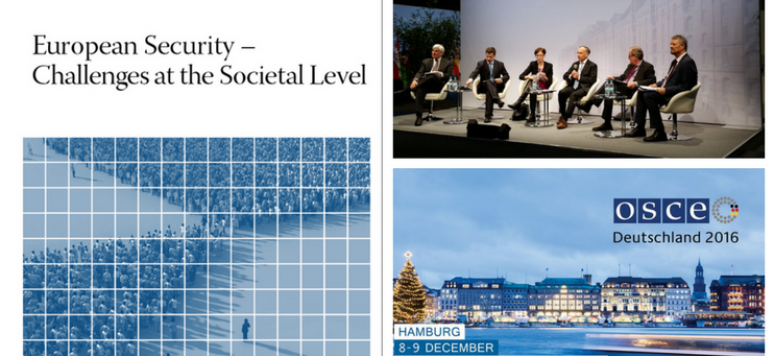Ouvrages hors Ifri - European Security – Challenges at the Societal Level A report by the OSCE Network of Think Tanks and Academic Institutions

Relations between Russia and the West have deteriorated dramatically in recent years. The institutional foundations of cooperative security in Europe and the rules and principles they represent are rapidly disappearing.
It is within this context that a working group of the "OSCE Network of Think Tanks and Academic Institutions", an autonomous Organization for Security and Co-operation in Europe (OSCE)-related track II initiative, has drafted the present report. Its main objective consisted of identifying ways out of the current situation.
The core of the dispute between Russia and Western countries is the disagreement over the European order. There is no longer a consensus on the principles, instruments and institutional framing of such an order. This dispute over this order has been widely securitized and, to a certain degree, re-militarized – as illustrated by the events in Ukraine or the increased number and size of military exercises. We also observe fragmentation in the economic realm.
If Europe wants to regain lasting stability, states have to elaborate a shared understanding of a set of rules governing the European order on the basis of the Helsinki and Paris principles. The long-term strategic task is therefore to restore consensus on a sustainable and rule-based European order. This may take a long time. The relevant dialogue has not yet even started, pending a settlement of the Ukraine conflict. There is no alternative to such a political process apart from ongoing crises, escalation and war. Needless to say, the obstacles on the way ahead are numerous. Therefore, from a mid-term perspective, it will be necessary to agree on a modus vivendi that would allow for mitigating and politically managing existing disputes and conflicts.
In order to attain to the overall, long-term objective of a consensus on the European order, several steps could be envisioned. Creating a more connected economic order may be a step forward. We also need to work on re-establishing a shared normative order. Currently, no sufficiently firm joint value base on which to build practical policies exists. Norms are not only not shared, but different and diverging norms are used as political weapons.
Restoring the OSCE States’ damaged value base is thus a long-term project with uncertain success. Despite and just because of this fact, a number of steps should be started right now – among states, but also at the societal levels as well as within the OSCE. These steps first and foremost include agreement of a Code of Conduct for Facilitating a Diplomatic Process as outlined in the report.
OSCE Network of Think Tanks and Academic Institutions [1]
